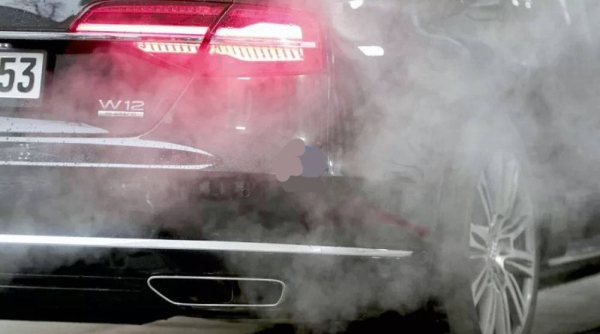Germany and the EU have reached an agreement to allow the registration of new vehicles with combustion engines that only use climate-neutral fuels after 2035. The EU had originally proposed a complete ban on the sale of new cars with combustion engines from 2035. The German government was opposed to the ban and argued that cars burning e-fuels are carbon-neutral when produced using renewable energy and carbon captured from the air. The agreement has divided opinions within the German government, with the libertarian Free Democratic Party supporting the use of e-fuels and the environmentalist Green Party backing a complete ban on combustion engines. Jan-Christoph Oetjen, the transport policy spokesman for the FDP in the European Parliament, has called the proposed ban “nonsensical” and stated that it has been taken “off the table.” He believes that keeping the technology will preserve important jobs in Europe.
Germany and EU reach agreement to allow registration of new vehicles with combustion engines using climate-neutral fuel after 2035.
Germany and the European Union have come to an agreement over the future of vehicles with combustion engines, allowing the registration of new cars with these engines after 2035 provided that they use climate-neutral fuel only. The EU had initially proposed new carbon dioxide emission standards for vehicles which included a complete ban on the sale of new cars with combustion engines from 2035. However, this was met with opposition from Germany, who argued that cars burning e-fuels are carbon-neutral when produced using renewable energy and carbon captured from the air.
EU Commission Vice-President Frans Timmermans tweeted that an agreement had been reached between the EU and Germany on the future use of e-fuels in cars. German Transport Minister Volker Wissing also tweeted that they had agreed on concrete procedural steps and that a specific timetable had been made binding. They aim to complete the process by fall 2024.
The agreement has caused a division within the German government between the libertarian Free Democratic Party (FDP), which supports the use of e-fuels, and the environmentalist Green Party, which backed a complete ban on combustion engines. The center-right Union bloc, Germany’s main opposition party, also opposed an EU-wide ban on combustion engine vehicles, warning that it would harm the country’s prized auto industry.
Critics of the agreement argue that battery-electric technology is a better fit for passenger cars, and synthetic fuels should only be used where no other option is feasible, such as in aviation. The environmental group Greenpeace criticized the agreement sharply, calling it a “lazy compromise” that undermines climate protection in transport and harms Europe.
However, the transport policy spokesman for the FDP in the European Parliament, Jan-Christoph Oetjen, called the agreement a great success. The German news agency DPA reported that the FDP believed they had “got away” with their “reckless blackmailing” of the EU.
In conclusion, the EU and Germany have reached an agreement allowing the registration of new vehicles with combustion engines that only use climate-neutral fuels after 2035. The agreement has divided opinions within the German government, with the FDP supporting the use of e-fuels and the Green Party backing a complete ban on combustion engines. Critics of the agreement argue that battery-electric technology is a better fit for passenger cars, while supporters see the agreement as a success.
FDP Spokesman Jan-Christoph Oetjen calls combustion engine ban “nonsensical”
Jan-Christoph Oetjen, the transport policy spokesman for the Free Democratic Party (FDP) in the European Parliament, has called the proposed ban on internal combustion engines “nonsensical” and stated that it has been taken “off the table.” He believes that keeping the technology will preserve important jobs in Europe. This statement was reported by Euronews.
Don’t miss interesting posts on Famousbio









